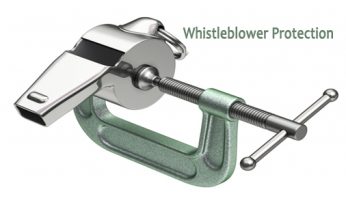 Did Elon Musk try to ruin a Tesla whistleblower? It seems all is not well at Tesla’s California plant, nor at its Nevada factory. This, according to former employee Martin Tripp, who allegedly leaked information about inefficiencies and product problems. In response to Tripp’s evaluation of conditions at the factory, it seems Elon Musk, the billionaire owner of Tesla, sought his own brand of revenge.
Did Elon Musk try to ruin a Tesla whistleblower? It seems all is not well at Tesla’s California plant, nor at its Nevada factory. This, according to former employee Martin Tripp, who allegedly leaked information about inefficiencies and product problems. In response to Tripp’s evaluation of conditions at the factory, it seems Elon Musk, the billionaire owner of Tesla, sought his own brand of revenge.
Details of the Tesla Whistleblower Case
A stunning report released to the Business Insider indicated that Tesla Inc. had some serious problems. It seems the Gigafactory was having to retool or completely dump 40% of all raw materials at its battery factory due to safety issues. The result was a $150 million deficit, all due to inefficiencies in the company. Furthermore, some unsafe batteries were purportedly making it into cars in the marketplace. When the report made it to the media, Tesla denied it, but Musk was beyond irked, according to reports. In his agitation, he assigned investigators to locate the source of the leak.
In short order, the Tesla whistleblower was identified as Martin Tripp, an assembly line worker at the Gigafactory. Tripp, a self-described idealist, had been hoping to improve procedures.
According to Musk, Tripp was no Tesla whistleblower hero hoping to inspire improvements; he was an enemy guilty of sabotaging the company. In fact, Musk mused about the possibility that Tripp was a spy, working with rival industries or corporations to kill the eco-friendly vehicles under design. Could Tripp be connected to the oil industry, or might he be conspiring with other auto manufacturers? Tesla had been bruised by the media coverage, and Musk was not about to let that go. He sued Tripp for $167 million.
Shortly afterward, the local sheriff contacted alleged Tesla whistleblower Trip to say that an anonymous tip had led them to his doorstep. Someone had called in and reported that Tripp was orchestrating a mass shooting at work. Police quickly determined that Tripp posed no threat, as he was weeping and had no weapons. Tripp confided to officers that Musk frightened him. In fact, he thought it likely that Musk was the anonymous caller.
Per this article, an investigation revealed that Musk did, indeed, want to destroy Tripp. The PR department, in fact, had propagated rumors about Tripp: He was dangerous; he was involved in a conspiracy against Tesla; he was potentially homicidal. The security team followed Tripp around, hacked his phone, and sent law enforcement down rabbit holes as they attempted to understand the issues. Tripp lost his job and left the country to get away from the nasty publicity, his life, ostensibly, ruined. [Read more…]






